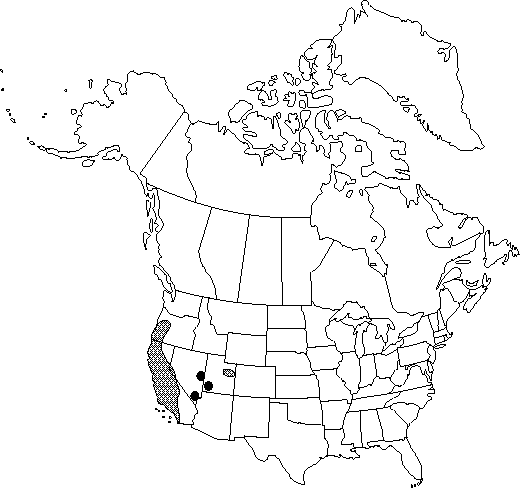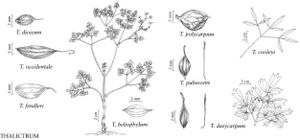Difference between revisions of "Thalictrum polycarpum"
Proc. Amer. Acad. Arts 14: 288. 1879.
FNA>Volume Importer |
imported>Volume Importer |
||
| (3 intermediate revisions by 2 users not shown) | |||
| Line 10: | Line 10: | ||
|special_status={{Treatment/ID/Special_status | |special_status={{Treatment/ID/Special_status | ||
|code=F | |code=F | ||
| − | |label= | + | |label=Illustrated |
}} | }} | ||
|basionyms={{Treatment/ID/Basionym | |basionyms={{Treatment/ID/Basionym | ||
|name=Thalictrum fendleri var. polycarpum | |name=Thalictrum fendleri var. polycarpum | ||
|authority=Torrey | |authority=Torrey | ||
| + | |rank=variety | ||
|publication_title=Pacif. Railr. Rep. | |publication_title=Pacif. Railr. Rep. | ||
|publication_place=4(5): 61. 1857 | |publication_place=4(5): 61. 1857 | ||
| Line 43: | Line 44: | ||
-->{{#Taxon: | -->{{#Taxon: | ||
name=Thalictrum polycarpum | name=Thalictrum polycarpum | ||
| − | |||
|authority=(Torrey) S. Watson | |authority=(Torrey) S. Watson | ||
|rank=species | |rank=species | ||
| Line 57: | Line 57: | ||
|publication title=Proc. Amer. Acad. Arts | |publication title=Proc. Amer. Acad. Arts | ||
|publication year=1879 | |publication year=1879 | ||
| − | |special status= | + | |special status=Illustrated |
| − | |source xml=https:// | + | |source xml=https://bitbucket.org/aafc-mbb/fna-data-curation/src/2e0870ddd59836b60bcf96646a41e87ea5a5943a/coarse_grained_fna_xml/V3/V3_372.xml |
|genus=Thalictrum | |genus=Thalictrum | ||
|section=Thalictrum sect. Heterogamia | |section=Thalictrum sect. Heterogamia | ||
Latest revision as of 21:48, 5 November 2020
Roots fibrous. Stems erect, 6-18(-20) dm, glabrous. Leaves mostly cauline, petiolate. Leaf blade 3-4×-ternately compound; leaflets orbiculate to obovate, apically 3-cleft or 3-parted, divisions undivided or shallowly 3-lobed, 15-40 mm wide, lobes rounded or somewhat acute, surfaces glabrous or glandular. Inflorescences terminal, panicles, many flowered. Flowers: sepals whitish to purplish, elliptic to ovate or lanceolate, 2-4(-5) mm; filaments whitish to pinkish, 3-6 mm; anthers (1.4-)2-4 mm, distinctly apiculate. Achenes 10-15, spreading in globose heads, not reflexed, sessile or nearly so; stipe 0-0.6 mm; body nearly globose to obovoid to obliquely obovate, laterally compressed, somewhat inflated and papery, 4-7(-8) mm, glabrous to glandular, often with 1 or 2 primary veins on each side, veins sinuous, branched, anastomosing-reticulate; beak 2-4 mm.
Phenology: Flowering mid-late spring (Apr–Jun).
Habitat: Streamsides and other moist places, forests, and open woodlands
Elevation: 600-3100 m
Distribution

Calif., Nev., Oreg., Utah, Mexico (Baja California).
Discussion
Thalictrum polycarpum is the only species in sect. Heterogamia with anastomosing-reticulate veins on the achene.
The stems and roots of Thalictrum polycarpum are considered poisonous when ingested by humans or cattle; Native Americans used this species medicinally as a wash for headaches, as an applications for sprains, and as a universal charm and panacea (D. E. Moerman 1986).
Selected References
None.
